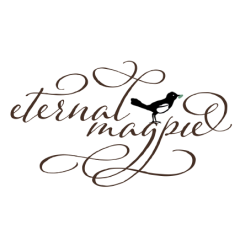I’ve been struggling a bit lately… not least with the book that I was reading which led to the sidetrack off into the world of bluebell glue. In the end I read the prologue and the first chapter, the epilogue and the bibliography, and called it quits. It was written in such a completely impenetrable style that it made me groan inwardly (and sometimes outwardly) every time I picked it up. So, it’s gone back to the library, and if it seems useful later on I’ll try to battle my way through it again.
I was also struggling a bit with some Latin books, having decided that refreshing my knowledge in that area would be quite useful. I borrowed the books that I studied in my first year at Uni, way back in the mists of 1993-4, only to discover that I had forgotten absolutely everything I’d ever learned about Latin, and therefore couldn’t read them. Awkward. So I took those back to the library, and swapped them for something more on my level. The picture above is from the Oxford Latin Course, designed for beginners up to GCSE. Even I can figure out that this says “Argus is good”, so I think I might be able to get somewhere!
Last weekend I went to a Medieval Manuscripts workshop at my local museum. That turned out not to be a workshop so much as two lectures, which was disappointing for the part of me that was desperate to be let loose with a pencil, but really interesting overall. The first lecture was about the types of manuscripts that might have belonged to an institution such as Reading Abbey, which turned out to be given by the head of History at Reading University! I went over and introduced myself afterwards, and while she doesn’t directly teach on the MA that I’ll be doing, apparently I can sign up for one of her MRes Medieval Studies modules if I want to. It just means doing an essay/research module rather than a taught one, which is fine by me! So to be honest, the event was worth going to just for that conversation alone.
This week, my supervisor at the Herbarium emailed me the details of the Herbal History Research Network, which he was surprised that I’d never heard of. They’re an interdisciplinary group, covering a huge time period, and the aim is to be able to help one another with the common pitfalls that face the study of herbal medicine:
“One concern is that there is much uncritically sourced and repeated information, another is that there is little access to original sources which can be used in an effective way. Judging from the range of queries reported by individual specialists in this field, there is a lack of knowledge and understanding about credible and reliable sources for information on medicinal plants. The resources available for various kinds of research also present particular methodological issues, for example concerning the identification of plants, reliable translations, accurate naming of plants, substitutions in different cultures, and interpretation of texts and images. Awareness of these kinds of problem is increasing and, through the HHRN, we hope to share methods, techniques and solutions.”
They also have seminars and study days and conferences (assuming I can get myself well enough to travel to them – the next two are in London and Bath), and they have a Researchers’ Mailing List. Which I am now a member of. And have been introduced to everybody else on. (Is that a sentence? Good grief.) Which I suppose makes me an official researcher of herbal history now.
Gosh.
